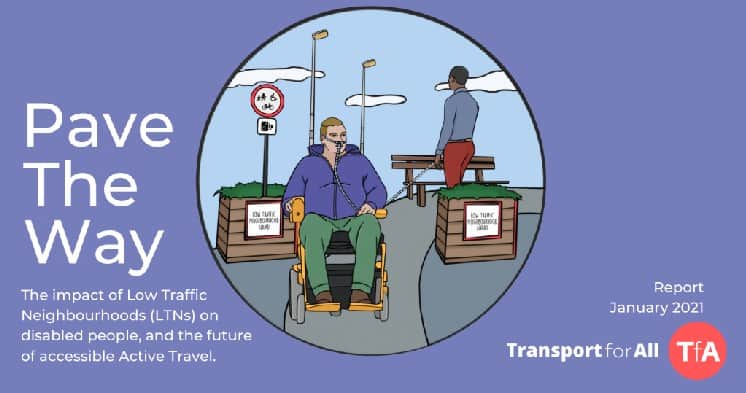
The past week has brought the whole issue of Disabled people and active travel to the fore:
First, the High Court ruled that the Mayor of London’s Streetspace programme (aimed at providing safer walking and cycling infrastructure during the Covid-19 pandemic) was unlawful. This was as a result of a Judicial Review, requested by the Taxi trade. One of the reasons they gave for requesting the Judicial Review was that, by restricting the ability of taxis to drive through certain streets, the measures were discriminating against Disabled people, who might have no other means of getting to their destination. The Mayor of London and TfL (who will appeal in the first instance) may have to revise and rethink the whole programme.
Our Director, Isabelle Clement says: “It gives me no pleasure to point out that soon after the publication of the Streetspace plans last Spring, we expressed the fear that, without proper consultation and involvement of Disabled people in the implementation of the Mayor’s ambitious plans, the measures could have very negative consequences on Disabled people’s lives. TfL did start engaging with Disabled people’s organisations late in 2020, but it should have started much earlier. We are very disappointed to see that the whole programme, which overall has our support, is now being jeopardised by court actions which can point to equalities shortcomings”.
Later in the same week, Disabled people-led accessible transport charity Transport for All published their ground-breaking Pave The Way report, which focuses on the impact of Low Traffic Neighbourhoods (good and bad) and the barriers to Active Travel for Disabled people. Here at Wheels for Wellbeing, we were pleased to have provided an “expert contributor” piece to the report!
Recognised as one of the many ways of travelling for Disabled people during the pandemic, cycling has been given its proper place in the report. Comprising of various interviewee testimonials, the report includes a discussion of the many barriers that exist – with mention of how they currently stop large numbers of Disabled people from walking and cycling at the moment – and clear recommendations aimed at removing the barriers to cycling more.
There has never been a better time to focus on the barriers to active travel for Disabled people. Not only to pursue change towards cleaner, healthier modes of transport, but also to find ways of making walking and cycling straightforward and affordable options for all. This will ensure that we can rebuild our health and wellbeing levels post-COVID, all whilst supporting our planet.
